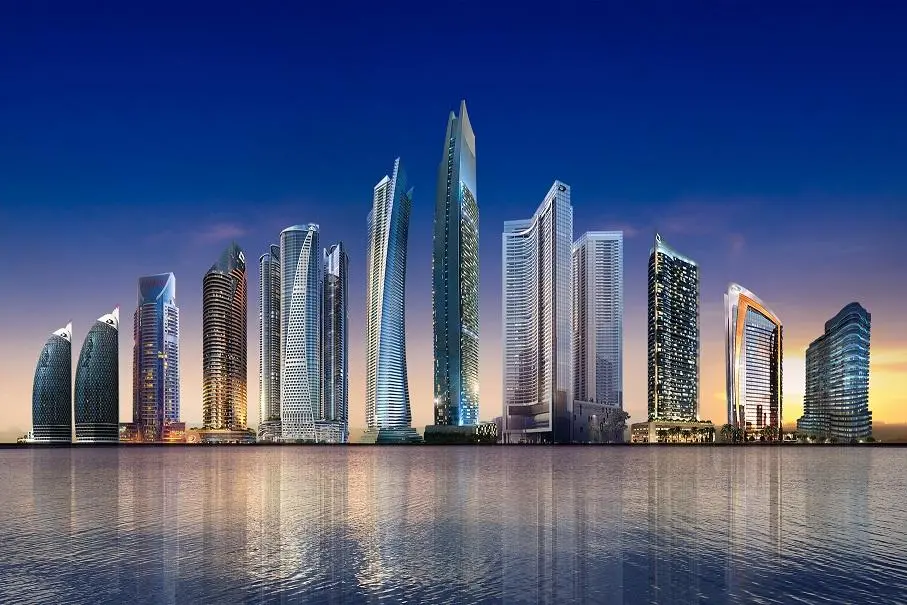PHOTO
Dubai-based developer DAMAC Properties has adopted a strategy of focusing on liquidity and cash collection in current real estate market conditions marked by weak prices amid excess supply and sluggish economic growth.
“Our strategy and approach change with the changing landscape of the industry. In current market conditions, the business is focused on maintaining liquidity and enabling cash collection in order to maintain strong balance sheets,” said Niall Mcloughlin, Senior Vice President, DAMAC Properties, in an email interview.
He said the company is continuing to focus on execution and delivery of pipeline projects while rolling out attractive offers and a competitively priced inventory to boost sales.
In the first half of the year, DAMAC delivered 1,476 units, including the first-ever handover in AKOYA project in Dubai, with nearly 315 units in the Claret cluster completed and in the process of being handed over to customers. The developer also completed two other projects in Dubai namely Ghalia and Tower 108.
“In 2018, we handed over a record 4,100 units but we expect to out that number in 2019,” said Mcloughlin.
As of June 30, 2019, the company had delivered close to 26,000 homes and had a development portfolio of close to 40,000 units at various stages of planning and progress. This included 10,000 hotel rooms, serviced apartments and hotel villas, managed by its wholly-owned hospitality arm, DAMAC Hotels & Resorts.
DAMAC has also reported booked sales of 1.8 billion UAE dirhams ($490 million) in first half of 2019.
Backed by these numbers, he said the company has managed to pay down its 1.4 billion dirhams ($381 million) of debt in the last 12 months despite the prevalent softer market condition.
“So overall, the company continues to maintain strong balance sheets, and continues to be a strong and safe investment option,” said Mcloughlin.
As of June 30, 2019, the developer’s gross debt stood at 4.1 billion dirhams, while the company held cash and bank balances of 5.6 billion dirhams and development properties at 9.4 billion dirhams, according to first half 2019 financial report. Shareholders’ equity stood at 14.2 billion dirhams.
Long term prospects
As it has been the case with most real estate developers in Dubai, DAMAC’s financial performance suffered on account of subdued market sentiment. Its net profit slipped to 82 million dirhams ($22 million) in the first half of 2019 from 862 million dirhams ($235 million) for the first half last year, recording a 90.53 percent drop. The company’s revenue too fell 49 percent to 1.9 billion dirhams ($517 million) in the first half, compared to 3.7 billion dirhams ($1 billion) in year ago period.
Pointing out that globally, real estate markets are cyclical in nature, Mcloughlin said Dubai’s real estate sector is currently “poised for an upturn and is displaying signs of market adjustment”.
He said the industry is all set to benefit from a series of government initiatives such as 100 percent foreign ownership of businesses, long-term visas for skilled professionals and investors, and the recent introduction of the UAE gold card. “Also, the expectation is that the Expo in 2020 will prove to be a catalyst for the nation’s GDP, positively influencing all economic pillars,” he noted.
The DAMAC executive also lauded the government’s recent move to set up a real estate committee which will have a “positive impact” on the real estate sector and enable effective urban planning.
“The real estate market is maturing, and as a key driver of the economy, the introduction of government initiatives such as this committee, will help achieve balance and efficiency, enabling the city’s progress towards its long- term goals,” he said.
Mcloughlin is bullish about new markets, especially China, with investment from that country into Dubai going up 64 percent between 2016 and 2017. “This trend has continued in 2018 and the first quarter of 2019, and the reported projection is that Chinese investments will increase by 70 percent in 2019,” he said, citing industry reports.
In terms of development footprint, DAMAC currently has projects in Dubai, Abu Dhabi, Amman, Beirut, London, Riyadh and Jeddah.
Among the key international projects, DAMAC’s current portfolio includes a 50-storey DAMAC Tower at Nine Elms, London and DAMAC Towers Riyadh, on King Fahd Road.
Mcloughlin said the UK and the Kingdom of Saudi Arabia will continue to be areas of interest for DAMAC as they hold great potential. “However, we are always open to lucrative opportunities across the world,” he concluded.
(Reporting by Syed Ameen Kader; Editing by Anoop Menon)
Our Standards: The Thomson Reuters Trust Principles
Disclaimer: This article is provided for informational purposes only. The content does not provide tax, legal or investment advice or opinion regarding the suitability, value or profitability of any particular security, portfolio or investment strategy. Read our full disclaimer policy here.
© ZAWYA 2019




















